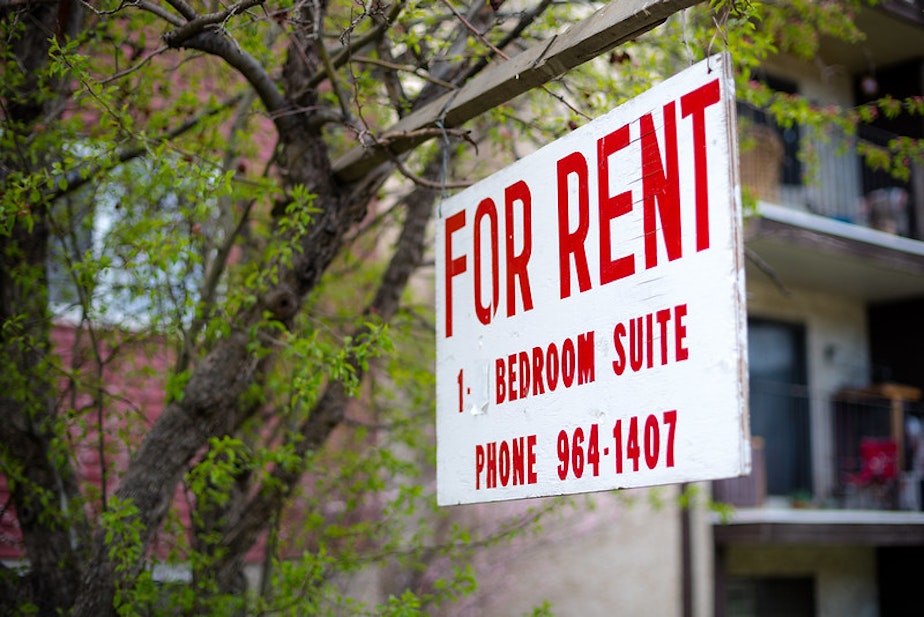Did your Seattle rent just go up, by a lot? The city's relocation assistance program might be able to help

So many people around Seattle are struggling to keep up with rising rents. It's pushing a lot of people out of apartments they’ve lived in for years.
The city of Seattle does have some programs in place to try to help renters. But when you're facing the prospect of having to leave your home, it can be a lot to try to figure out.
Soundside Producer Jason Burrows,has been navigating the “Economic Displacement Relocation Assistance” program, also known as EDRA (pronounced "Ed-ruh").
Jason started looking into it after he was priced out of his own place this past December.
The way the Economic Displacement Relocation Assistance program works is as follows: If you’re a person or household living in the Seattle city limits, making 80% or less of the area median income, and your rent goes up by 10% or more, you’re eligible for assistance in moving to a new place.
Sponsored
Maureen Roat, the Property Owner and Tenant Assistance Manager at Seattle’s Department of Construction and Inspection, explained how the city program got started.
“It was a program that was born in July of 2022, after the city council passed an ordinance that was really designed to assist tenants who were being displaced in the city, because of very high rent increases that were coming through,” Roat said.
Qualified households receive three times the rent they're currently paying, divided by the number of households in the unit. Families and couples count as a single household, but roommates count as separate households. In Jason's example, if he qualified, he would have received half of the lump sum, since he and his roommate counted as two separate households.
These payments are made to tenants through the city, but the money actually comes from the owners of the rental properties themselves.
Sean Flynn, board president & executive director of the Rental Housing Association of Washington, or RHAWA, was very clear how he felt about the program.
Sponsored
“I think the program should just go away," Flynn said. "I think that we need to provide housing assistance to people, we do, and we should do that through a voucher program. But what we should not do is penalize folks providing housing.”
Flynn says that programs like EDRA only cause more rent increases, as landlords try to keep up with the market rate for housing.
“I told lawmakers this when they passed it: When you implement a program like this, it makes it very difficult for someone to keep units deeply under rent," Flynn explained. "So now what most folks do is they do a rent increase every year, regardless of where you're at.”
Even when rents stay below that 10% threshold, it can still be hard for people to keep up.
Mike Buchman is the communications director at Solid Ground, a local organization dedicated to reducing poverty, with a big focus on tenant and rental assistance programs. He says that he’s seen folks who have come in after receiving a 9.8% increase, which doesn’t trigger any assistance through EDRA, but who are concerned about what will happen next year.
Sponsored
"And there is a fear among tenants that we're talking to that should they be able to accommodate that increase, which they may or may not, they expect that exactly a year after they're going to get hit with something similar."
One thing that Maureen Roat at Seattle's Department of Construction and Inspection made very clear is that if you aren't sure if you qualify for the program, apply anyway.
"Go to the website, look at the requirements, make sure that you tangentially meet those requirements before you give any notice to vacate, and if you are unsure, contact our office," Roat said.
The Renting in Seattle helpline is 206-684-5700.
You can also find more information at the EDRA page.
Sponsored
Listen to Soundside’s full conversation with producer Jason Burrows by clicking the play icon at the top of this story, and let us know what questions YOU have about the EDRA program or other Renting in Seattle issues. Send us an email - soundside@kuow.org or leave a voicemail at 206-221-3213.





